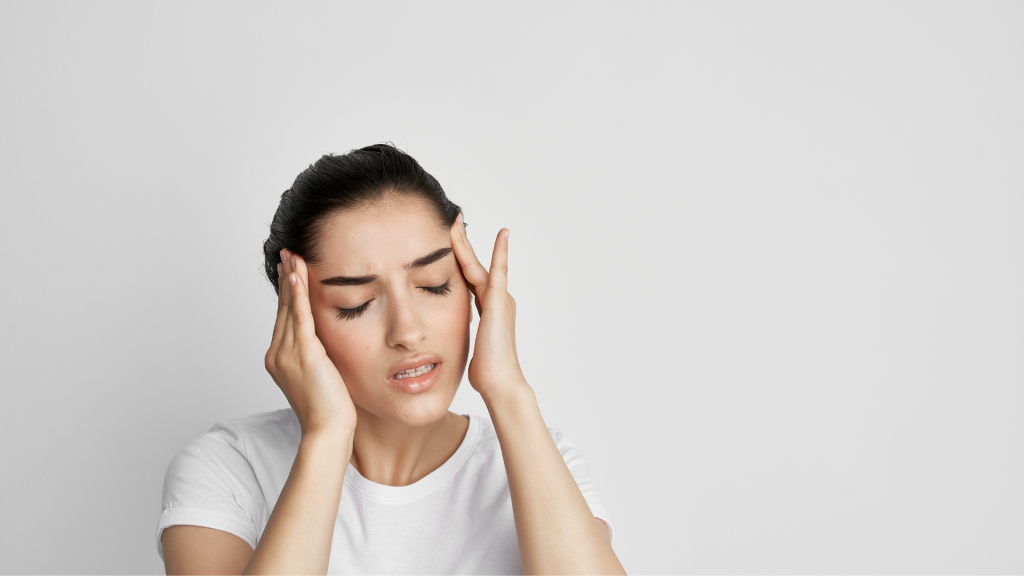What Causes Migraines?
What is a migraine?
Migraine is a common, often disabling neurological disease that strikes about 12 million Americans each year. A “migraine brain” is literally a brain that hurts. Migraines usually involve intense head pain, sometimes accompanied by nausea and sensitivity to light, sound, and motion. They can last from hours to days.
You can get a migraine by drinking too much caffeine, eating too much chocolate, doing too much exercise, or even losing your balance when you’re out on the dance floor. They come on without warning, can cause severe head pain and nausea, and last from hours to days. Some may even turn to things like marijuana for nausea, or other medication, in order to help them get through it and try to go about their days as normally as they possibly can.
Here’s what causes migraines:
Emotional stress
Emotional stress can cause migraines for a variety of reasons. Some people are stressed out because of an event in their everyday lives, while others have a specific trigger that sets off the tension, such as a relationship problem or a workplace conflict. Yet others have a biological predisposition to get migraines, while others are prone to them due to stress. Still, many suffer from a condition that causes frequent headaches, such as Meniere’s disease, a disease of the inner ear. In order to get rid of emotional stress, people usually take the help of cannabis products that could help in calming their minds. Moreover, it is advised to buy trusted and branded cannabis products from http://mmjexpress.cc/product-category/brands/laughing-monkey/ or any similar site as counterfeit products might be harmful to health.
Physical stress
All of us have experienced some form of stress in our lives. We might have undergone a major change at work, or we might have been dealing with a huge life transition, like moving to a new city or starting a new job. We can also experience stress from a physical source, such as a sprain or a sore muscle. In general, the human body is designed to handle certain stresses, and we can minimize their adverse effects.
Dehydration
Millions of people suffer from migraines and other headaches. Dehydration is one of the most common causes. Lack of water in your system can take a toll on your body, causing headaches and migraines.
Sleep changes
In recent times, it has suddenly been revealed that people who sleep less are more prone to suffer from migraines, and conversely, those who sleep more are less likely to have migraines. This is the conclusion from an extensive study of a group of healthy individuals who wore monitoring devices to record their sleep patterns. A “sleeping less” group was found to have the same number of migraines as other people who slept the same amount. Meanwhile, a “sleeping more” group had about 25% fewer migraines than the rest. The study revealed that the more people slept, the more likely it was that they would wake up during the night and experience migraines. If you are experiencing trouble sleeping, you could make use of the health-focused apps and gadgets available to help you get better sleep. Or, if they don’t seem to be working for you, consider seeking medical assistance from centers like Gwinnett Sleep.
Your environment (effects on the senses)
Environmental stimuli, or “ecosystems,” can influence a person’s health. Work and family schedules, social situations, and personal habits are all examples of people’s environmental conditions. So, what is it in our environment that may cause migraines? Certain chemicals in our environment can trigger or worsen a migraine or interact with other health-related issues. Research has found that the use of pesticides, cigarette smoke, and air pollution can lead to headaches and health problems, even before one gets a headache.
Medicines
Migraines can be caused by many factors, though they rarely result from a serious medical condition. In most cases, migraines are brought on by stress, anxiety, or fatigue. Some medications, such as painkillers, can also trigger migraines, though it is rare for a single medicine to cause a serious, debilitating attack.
Although migraines are typically viewed as a brain disorder, they are actually caused by a mix of factors, including genetics, environmental and lifestyle factors, infections, and stress. Women are more likely to get migraines than men, and the risk seems to increase with age. Migraine sufferers are also at a higher risk for depression and anxiety. To reduce the risk of depression and anxiety, as well as migraine pain, you can take CBD or hemp oil either with juice or directly. Both of these products can help to reduce headaches and stress, improve the sleep cycle, and overall enhance your physical health. However, don’t confuse hemp and CBD oil as the same product since both have their own benefits and drawbacks. If you want more information, look for hemp oil vs CBD oil blogs and articles.
Just as some people are allergic to certain foods, some are allergic to certain triggers. Certain things, like specific food items, can make the headaches worse for those with migraine headaches. If you get migraines, the answer to what causes them may be simple: it’s called a “hereditary” condition. Migraines are hereditary, meaning they run in families, and if your parents or grandparents experienced migraines, it’s likely you will, too.
Leave a Reply Cancel reply
Recent Blog
Latest
Categories
Theme by The WP Club . Proudly powered by WordPress

